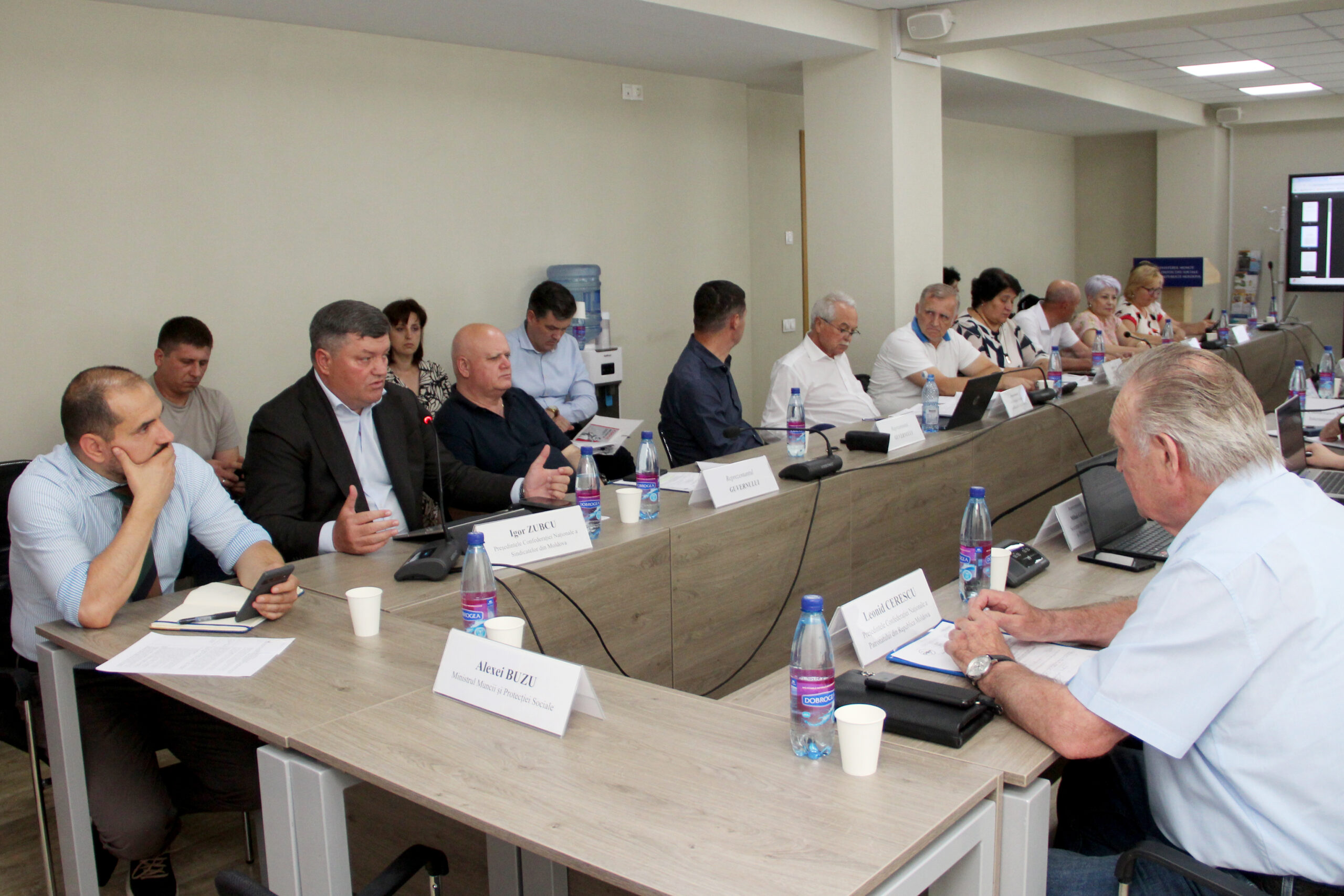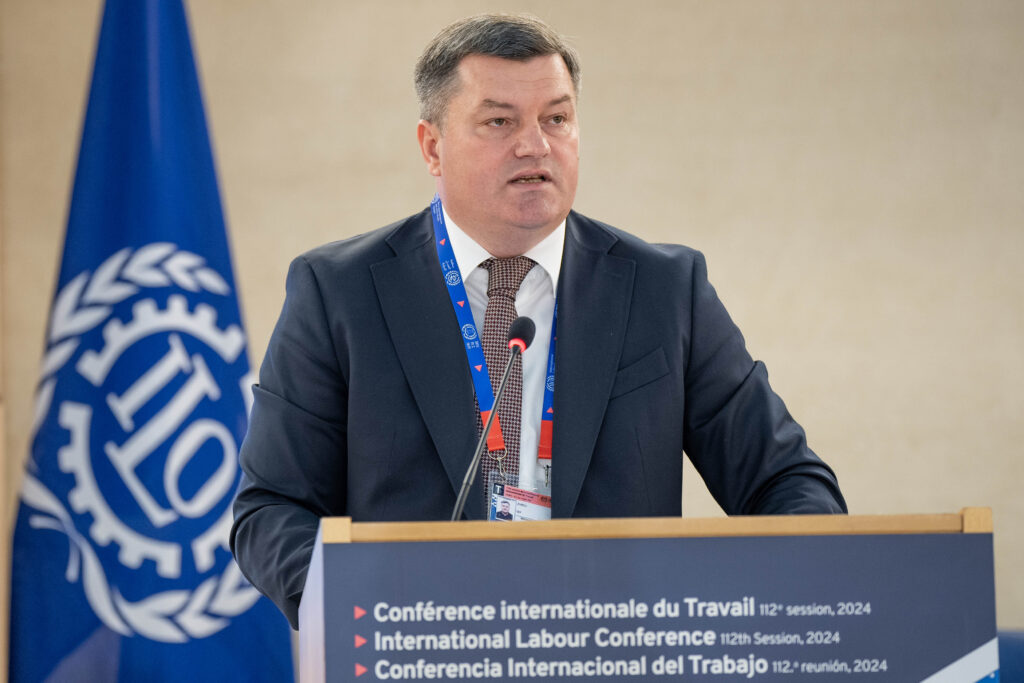At the request of the National Trade Union Confederation of Moldova (CNSM), an extraordinary meeting of the National Commission for Consultations and Collective Bargaining (CNCNC) was convened on June 25, 2025. During this meeting, the draft Law on the amendment of several normative acts was discussed. The proposed amendments relate to the regulation of labor relations involving temporary employment agencies, occupational safety and health for specific categories of workers, various aspects of employment relations, administrative liability, and other related matters, under the unique reference number 455/MMPS/2025.
During the session, CNSM leadership firmly condemned the manner in which the Ministry of Labor and Social Protection (MMPS) promoted the draft law, given its major impact on labor relations and working conditions in the Republic of Moldova.
CNSM President Igor Zubcu stressed that the drafting process had ignored key principles and standards of social dialogue. Specifically, the tripartite working group under the MMPS, consisting of representatives from the Government, Trade Unions, and Employers, was not convened. The draft was reviewed and promoted under an emergency procedure. Several working meetings were held without the participation of employer representatives, and the draft was approved by the Government before being examined by the CNCNC.
According to Igor Zubcu, this approach violates fundamental principles of social dialogue and undermines the trust between social partners. He stated that excluding social partners from the decision-making process and disregarding the views expressed by trade unions weakens social dialogue and jeopardizes the objectives related to labor and social protection.
CNSM Vice President Sergiu Sainciuc and Chief Adviser Sergiu Morari highlighted several major deficiencies in the content of the draft law. Trade union representatives pointed out that the draft was created by directly copying European legislation, rather than reformulating it in accordance with the national legislative framework. This method contradicts the national legal requirements and the approach previously advocated by the unions. Additionally, in the name of aligning with the EU acquis, some provisions of Moldovan labor law were unnecessarily weakened, even though no EU directive mandates such changes.
The union representatives further noted that many of the proposed changes lack solid justification. Some are contradictory, poorly formulated, or fail to align with the terminology already established in the Labor Code. Certain proposals disregard fundamental labor law principles, such as replacing the established concept of “rest time” with the vague and undefined notion of “adequate rest.”
Following consultations with 24 national-branch trade union centers, CNSM prepared and submitted a detailed opinion consisting of 15 pages. Regrettably, most of the objections and suggestions were not considered by the authors of the draft, which was approved by the Government in nearly its original form. The CNSM’s official opinion is available online at: https://sindicate.md/wp-content/uploads/2025/06/aviz-CNSM-Codul-Muncii.pdf.
CNSM calls for a return to a participatory and transparent legislative process in the field of labor, one that aligns with the recognized principles and standards of social partnership. Following the debate, it was agreed that the dialogue on the draft law would continue, including on the parliamentary platform, with the goal of identifying compromise solutions that ensure both effective legislative harmonization and the legal and socio-economic protection of workers.
The video recording of the CNCNC meeting held on June 25, 2025, including all participant interventions, is available at: https://www.privesc.eu/arhiva/109159/Sedinta-Comisiei-nationale-pentru-consultari-si-negocieri-colective-din-25-iunie-2025.

